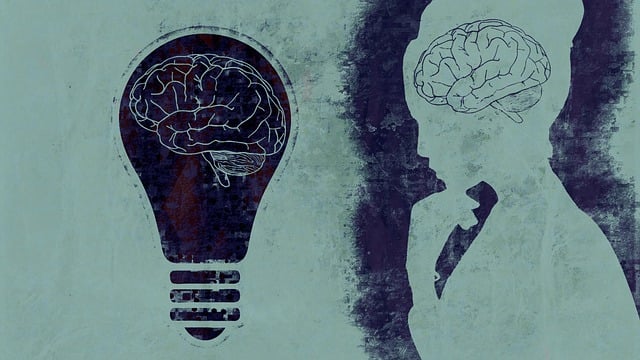Denver German speaking therapy initiatives require cultural sensitivity and tailored approaches to engage diverse communities, especially those with language barriers. By combining traditional German healing practices with modern techniques, well-structured mental health education programs can attract a broader spectrum of individuals. This inclusive method enhances accessibility, builds trust, encourages participation, and improves overall mental health support within the Denver community, catering specifically to its growing German-speaking population.
Community outreach programs play a pivotal role in addressing mental health disparities, especially within specific cultural groups. This article explores the comprehensive implementation of such initiatives, focusing on the German-speaking population in Denver. We delve into understanding community needs, designing trust-building strategies, and implementing culturally competent therapy services. Additionally, we discuss best practices for measuring success and ensuring sustainability, highlighting the impact of these outreach efforts on the well-being of Denver’s German-speaking residents.
- Understanding Community Needs: Identifying Gaps in Mental Health Services for German-Speaking Populations in Denver
- Designing Effective Outreach Strategies: Building Trust and Engaging the Target Community
- Implementing Programs: Best Practices for Delivering Cultural Competent Therapy Services
- Measuring Success and Sustainability: Evaluating the Impact and Long-term Viability of Denver German Speaking Therapy Outreach
Understanding Community Needs: Identifying Gaps in Mental Health Services for German-Speaking Populations in Denver

In Denver, understanding the unique needs of the German-speaking population is essential to delivering effective mental health services. While the city boasts a diverse community, gaps exist in accessible therapy options tailored specifically for individuals who speak German as their primary language. This linguistic barrier can significantly impact help-seeking behaviors, as cultural nuances and language proficiency play pivotal roles in mental wellness support. Many German-speaking residents might face challenges in finding therapists who not only share their linguistic background but also understand the specific cultural contexts shaping their experiences.
Community outreach programs aimed at enhancing mental health awareness among Denver’s German-speaking populations must address these gaps. By promoting accessible resources, such as bilingual therapy services and cultural sensitivity training for mental health professionals, initiatives can foster resilience building and inner strength development. Moreover, these efforts can play a pivotal role in depression prevention by ensuring that individuals from this demographic have the support needed to navigate life’s challenges effectively.
Designing Effective Outreach Strategies: Building Trust and Engaging the Target Community

Designing effective outreach strategies is paramount when implementing community programs, especially for specialized services like Denver German-speaking therapy. Building trust and fostering engagement with the target community requires a nuanced approach. It involves understanding cultural nuances, particularly in a diverse city like Denver, to ensure services are accessible and tailored to specific needs.
A well-designed mental health education program that incorporates cultural sensitivity can significantly enhance outreach efforts. By addressing emotional regulation techniques suitable for different backgrounds, these programs can attract individuals from varied communities, including those who might face language barriers. Engaging the target audience through culturally sensitive practices builds rapport and encourages participation, ensuring a more inclusive and effective therapy experience for all Denver residents in need of mental health support.
Implementing Programs: Best Practices for Delivering Cultural Competent Therapy Services

Implementing community outreach programs, such as Denver German speaking therapy initiatives, requires a nuanced approach to ensure cultural competency. Best practices involve tailoring services to meet the unique needs and preferences of diverse populations. This includes understanding and respecting cultural differences in communication styles, beliefs about mental health, and preferred therapeutic interventions. For instance, integrating elements of traditional German healing practices alongside modern therapy techniques can enhance accessibility and effectiveness for Denver’s German-speaking community.
Effective delivery of cultural competent therapy services involves active listening, clear communication, and collaborative goal setting. Mental wellness coaching programs developed with an eye towards cultural sensitivity can improve mood management and mental health awareness among diverse groups. By fostering open dialogue, validating experiences, and offering inclusive environments, therapists facilitate a safe space for individuals to explore their mental health challenges, ultimately contributing to improved outcomes for the Denver German-speaking community and beyond.
Measuring Success and Sustainability: Evaluating the Impact and Long-term Viability of Denver German Speaking Therapy Outreach

The implementation of community outreach programs, such as the Denver German Speaking Therapy initiative, proves to be a game-changer in addressing mental health disparities. By understanding specific community needs, designing culturally competent strategies, and adopting best practices, it is possible to provide effective therapy services that resonate with hard-to-reach populations. The success and sustainability of these programs lie in their ability to build trust, engage the target community, and measure their impact over time, ensuring long-term viability and improved mental well-being for Denver’s German-speaking residents.









